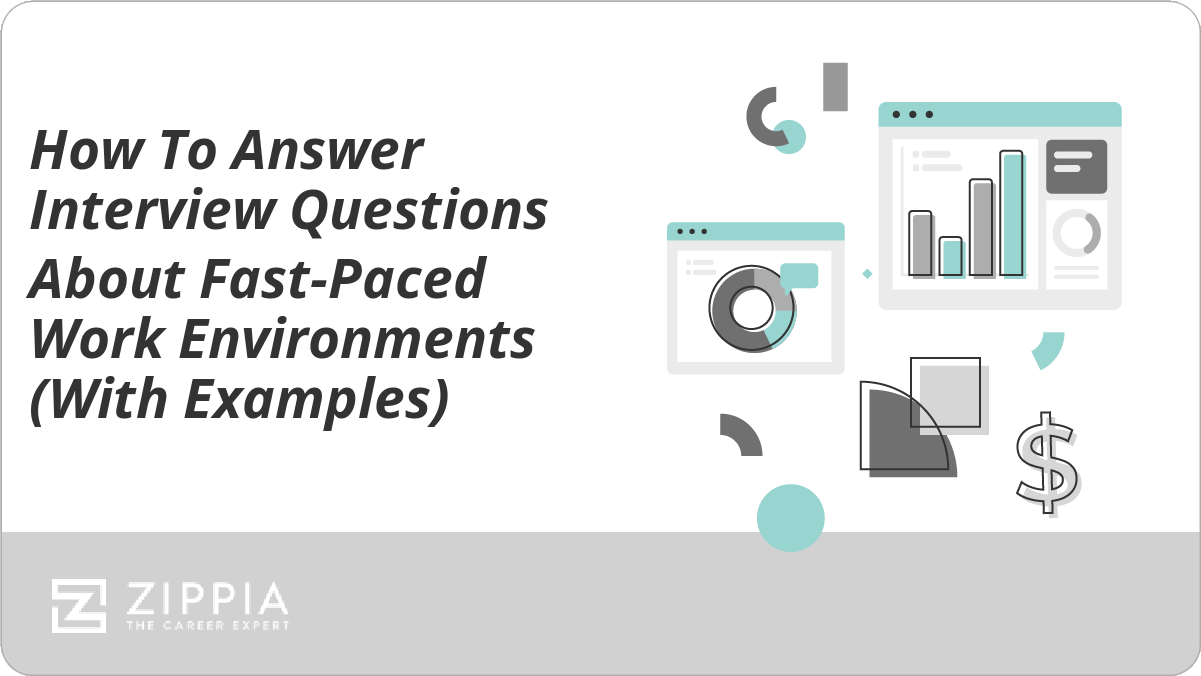- Office Etiquette
- Office Etiquette
- Dating A Coworker
- April Fools Pranks For Work
- How To Be A Good Employee
- Pet Peeves List
- How To Write A Project Proposal
- Qualities Of A Good Worker
- How To Get Along With Your Boss
- What Engaged Employees Do Differently
- What To Say Instead Of Sorry
- How To Send A Friendly Reminder Email
- How To End A Conversation
- Sorry For The Delay
- Tattoos In The Workplace
- Sorry For The Late Reply
- How To Respond To A Compliment
- New Employee
- How To Introduce Yourself Professionally
- Welcome New Employee Announcement
- Welcome Letter
- Thank You Note To Colleague
- 30/60/90 Plan
- Getting To Know You Questions
- Job Satisfaction
- Team Building Activities
- At Will Employment
- Company Culture
- Corporate Culture
- How To Succeed At Your New Remote Job
- How To Prepare For New Job Orientation
- How To Create An Employee Handbook
- Hostile Work Environment
- Hostile Work Environment
- How To Deal With A Difficult Coworker
- What Is Human Resource Development (HRD)?
- I Hate My Job
- Burnt Out At Work
- Condescending Coworker
- Sexual Harassment In The Workplace
- Work Environment
- My Job Sucks
- Favoritism At Work
- Respect In The Workplace
- Wagner Act
- Documentation In The Workplace
- Unconscious Bias
- Ageism
- What To Do When You Feel Unappreciated At Work
- How To Respond To A Warning At Work
- How To Deal With A Passive Aggressive Coworker
- What To Do When You're Unhappy At Work
- I Hate My Boss
- Gaslighting Boss
- Signs You're Underpaid
- Insubordination At Work
- Missing Work
- Communicating
- Send Retirement Wishes
- Write A Congratulations Email
- Professional Voicemail Greeting Examples
- Made A Mistake At Work
- Google Tricks
- Appeal Letter
- Employee Morale
- How To Write A Professional Email
- Out Of Office Message
- Small Group Icebreakers
- Memo Format
- Memo Examples
- Cell Phone At Work
- Meeting Minutes
- Communication Barriers
- How To Take Notes
- How To Brainstorm
- Ask For A Mental Health Day
- Transfer Request Letter And Email Examples
- How To Write A Business Proposal
- How To Deal With A Lazy Coworker
- How To Write A Rejection Letter
- How To Say No
- Scheduling
- Personal Goals
Find a Job You Really Want In
You may already have a general understanding of what the term “at-will employment” means. However, you probably aren’t aware of the many nuances and exceptions associated with the practice.
At-will employment has grown increasingly common over time, making it important to understand these nuances and exactly what your rights are as an employee or employer.
In this article, we’ll explain what at-will employment means and what rights are ascribed to both employers and employees. We’ll also discuss under what conditions employees contract can be terminated, as well as the exceptions that exist.
What Does At-Will Employment Mean?
At-will employment means that employers can terminate employees at any time without any prior warning or cause.
In all states other than Montana, employees may also quit their positions at any time without reason. Although it’s a common practice for workers to provide two weeks’ advance notice to their employers before leaving, it’s not legally mandated to do so.
Another possible misconception is that employers have to inform job-seekers of a position’s at-will status before extending a job offer.
Although many companies choose to do so to avoid future legal disputes, the practice isn’t explicitly necessary.
Exceptions to At-Will Employment
There are a variety of exceptions that require companies to follow stricter guidelines than those under the typical at-will employment doctrine.
Consider the following major exceptions to at-will employment:
-
Implied contract. 37 states recognize implied contracts as an exception to normal at-will employment doctrine.
An implied contract exists when both employer and employee mutually agree to certain terms of employment. Although it can be difficult to prove in court that an implied contract was formed, its existence doesn’t need to be backed up by any physical documentation.
Common examples of how implied contracts are created include verbal assurances and expectations listed in employee handbooks.
-
Good faith and fair dealing. The covenant of good faith and fair dealing requires employers to follow basic notions of fairness when determining whether to fire employees.
An example of bad faith termination would be terminating an employee right before they retire to avoid paying their pension or promised tuition reimbursement.
However, only 11 states recognize this covenant due to how broadly it can be applied.
-
Anti-discrimination laws. Federal and state governments prohibit terminating an employee for discriminatory reasons such as for their:
-
Race
-
Gender
-
Disability
-
Age
-
Citizenship
-
Sexual orientation
-
Physical health
Companies may make employment decisions indirectly based on disability and physical health, but only in terms of whether individuals are able to physically carry out essential duties.
Also, employers must explicitly lay out these essential duties when first hiring you for the job. If your physical health declines, your company can’t simply assume that it’ll impact your performance and use that as a reason for termination.
Companies are allowed to mandate that employees are vaccinated, including with the Covid-19 vaccine.
-
-
Employment contracts. Explicit rules that are stated and agreed upon in an employment contract override those set forth by typical at-will employment doctrine.
This is typically the case for union jobs covered under collective bargaining agreements.
Most union workers cannot be fired without just cause, examples of which include:
-
Employee misconduct
-
Attendance issues
-
Poor performance
-
Other agreed-upon workplace policy violations
-
-
Public policy. A termination is deemed wrongful if it violates any explicit, well-established public policies of the state.
For example, companies may not terminate an employee for refusing to engage in illegal activities or for submitting a workers’ compensation claim after being harmed on the job.
The vast majority of states in the United States recognize public policy as an exception to at-will employment doctrine.
The only exceptions being:
Whether You Should Sign an At-Will Employment Agreement
Many employers will ask new employees and job applicants to sign a written agreement acknowledging that they’re employed at will.
Many professionals are hesitant to sign such documentation, and perhaps rightfully so.
Let’s take a look at when you:
-
Should sign. In the majority of cases, at-will agreements are just standard procedure.
Most courts have held that companies can fire you for refusing to sign such agreements. Even if you don’t sign anything, the at-will presumption is considered the default rule.
Employers have nothing to gain from firing workers for arbitrary reasons. The written agreement is simply a way to protect themselves from any frivolous legal disputes.
-
Shouldn’t sign. You should hesitate before signing any documentation if your prospective employer made any verbal promises concerning the nature of the job beforehand.
For example, suppose that a hiring manager promises you a six-month probationary period to train you on the job before they’ll even consider firing you.
In this case, you need to closely scrutinize any at-will agreement you’re given and make sure such a stipulation was included.
Even if the company fails to deliver on its previous promise, virtually every court will treat your signature on the at-will agreement as your final word.
The only exceptions would be in extreme cases where the termination is deemed to be in bad faith or otherwise wrongful.
If the hiring manager’s promise isn’t included in the written agreement, then the tactful thing to do would be to request that they fix the discrepancy.
Don’t worry if they refuse to do so. This should be taken as a serious red flag and a sign that you should seek employment elsewhere.
If you’ve already been hired, then speak to a lawyer before proceeding forward.
Employee Rights Under At-Will Employment
Although employers may terminate your contract under at-will employment for almost any reason, it doesn’t mean you’re not entitled to certain rights and compensation.
If you’ve recently been fired, use the following as a checklist to make sure you’ve received all applicable benefits:
-
Severance pay. Research your company’s policies to check if they include a severance plan.
Employers aren’t usually required to provide severance pay, but the practice is common in many industries and large businesses. If you’re working for a large tech company, for example, then you’re most likely eligible for some form of severance pay.
Additionally, you should document any proof if your employer didn’t give you 60 days’ advance notice before firing you.
They’re allowed to do so, but the Worker Adjustment and Training Notification (WARN) Act entitles you to severance pay if your former employer has over 100 workers and didn’t provide advance notice before termination.
Do keep in mind that severance packages often come with certain stipulations.
You’ll likely be asked to sign a non-disparagement clause, restricting you from pursuing any lawsuits in the future over issues such as wrongful termination or discrimination.
It’s prudent to have a legal professional read over any such agreements before you sign them.
-
Contract rights. Union jobs are usually covered under collective bargaining agreements that limit the reasons why employers may fire workers.
The specifics vary between unions and agreements, but companies will typically be required to prove just-cause in order to fire an employee.
Just cause may take the form of:
-
Employee misconduct
-
Attendance issues
-
Poor performance
-
Other workplace policy violations are set forth in the collective bargaining agreement
-
Should I Worry About Being Fired Under At-Will Employment?
The fact that employers may fire you at any time for any reason without notice is understandably worrying for many professionals.
However, just because companies can do so doesn’t mean they will. Companies sometimes fire individuals out of nowhere for seemingly no reason, but it’s not something that most professionals need to worry about.
Consider the following reasons why:
-
Reputation. Most companies would like to avoid developing a reputation of being cruel or impulsive towards their employees.
It’s always a prudent step to research any employer’s reputation before accepting a job offer. If they don’t display a history of taking advantage of workers and exploiting at-will employment, then they’re unlikely to suddenly start doing so with you.
-
Lawsuits. Even terminations that seem cut-and-dry often result in disruptive legal disputes for employers. For this reason, most companies are hesitant to fire workers without necessity just because they’re allowed to.
-
Benefits. As previously discussed, even if you’re terminated, you’ll likely be able to receive some assistance in the form of severance pay or unemployment benefits.
The popularity of at-will employment may even aid you in finding your next job. Because it’s so simple for companies to lay off workers, many are less hesitant to take the risk of hiring new ones.
- Office Etiquette
- Office Etiquette
- Dating A Coworker
- April Fools Pranks For Work
- How To Be A Good Employee
- Pet Peeves List
- How To Write A Project Proposal
- Qualities Of A Good Worker
- How To Get Along With Your Boss
- What Engaged Employees Do Differently
- What To Say Instead Of Sorry
- How To Send A Friendly Reminder Email
- How To End A Conversation
- Sorry For The Delay
- Tattoos In The Workplace
- Sorry For The Late Reply
- How To Respond To A Compliment
- New Employee
- How To Introduce Yourself Professionally
- Welcome New Employee Announcement
- Welcome Letter
- Thank You Note To Colleague
- 30/60/90 Plan
- Getting To Know You Questions
- Job Satisfaction
- Team Building Activities
- At Will Employment
- Company Culture
- Corporate Culture
- How To Succeed At Your New Remote Job
- How To Prepare For New Job Orientation
- How To Create An Employee Handbook
- Hostile Work Environment
- Hostile Work Environment
- How To Deal With A Difficult Coworker
- What Is Human Resource Development (HRD)?
- I Hate My Job
- Burnt Out At Work
- Condescending Coworker
- Sexual Harassment In The Workplace
- Work Environment
- My Job Sucks
- Favoritism At Work
- Respect In The Workplace
- Wagner Act
- Documentation In The Workplace
- Unconscious Bias
- Ageism
- What To Do When You Feel Unappreciated At Work
- How To Respond To A Warning At Work
- How To Deal With A Passive Aggressive Coworker
- What To Do When You're Unhappy At Work
- I Hate My Boss
- Gaslighting Boss
- Signs You're Underpaid
- Insubordination At Work
- Missing Work
- Communicating
- Send Retirement Wishes
- Write A Congratulations Email
- Professional Voicemail Greeting Examples
- Made A Mistake At Work
- Google Tricks
- Appeal Letter
- Employee Morale
- How To Write A Professional Email
- Out Of Office Message
- Small Group Icebreakers
- Memo Format
- Memo Examples
- Cell Phone At Work
- Meeting Minutes
- Communication Barriers
- How To Take Notes
- How To Brainstorm
- Ask For A Mental Health Day
- Transfer Request Letter And Email Examples
- How To Write A Business Proposal
- How To Deal With A Lazy Coworker
- How To Write A Rejection Letter
- How To Say No
- Scheduling
- Personal Goals





